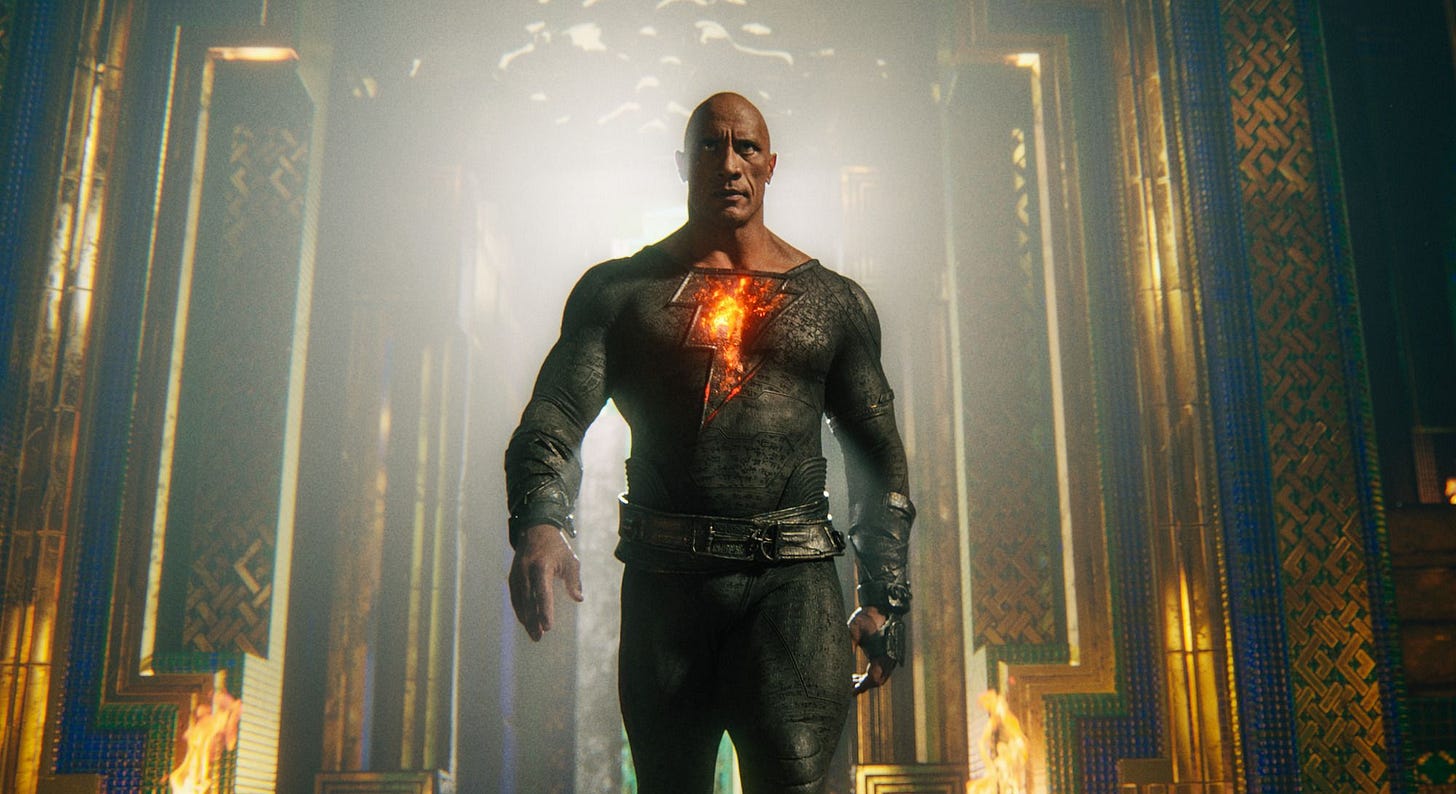
Dwayne ‘The Rock’ Johnson has been trying to make Black Adam for 15 years, more than half the time I’ve been on Earth. Calling it a passion project may be underselling what the character and the, now bygone, potential of a movie like this means to the actor. Johnson is fascinated by the character’s personal code, bending the rules of the typical hero into an anti-hero that can rival the powers of Superman. But, more importantly, Johnson has stated many times that, growing up a DC kid, the fact that Black Adam had brown skin really stood out to his younger self, wanting to know more about him.
With all this passion and hype — “the hierarchy of power in the DC Universe is about to change” — the final result was… just ok.

In the 15 year span of Johnson’s fight for this movie, the landscape of Hollywood has totally changed with the advent of streaming (along with its post-pandemic growth) and the continued success of the superhero Goliath redefining what audiences expect when they go to the movies. While there’s an argument on each side of these popcorn, rollercoaster-type, films on whether or not they’re good for the future of the industry, it’s lead to the breakout of many actors, directors, and writers. All those filmmakers have pushed, and been granted, the ability to bring their voice to an evolving Hollywood.
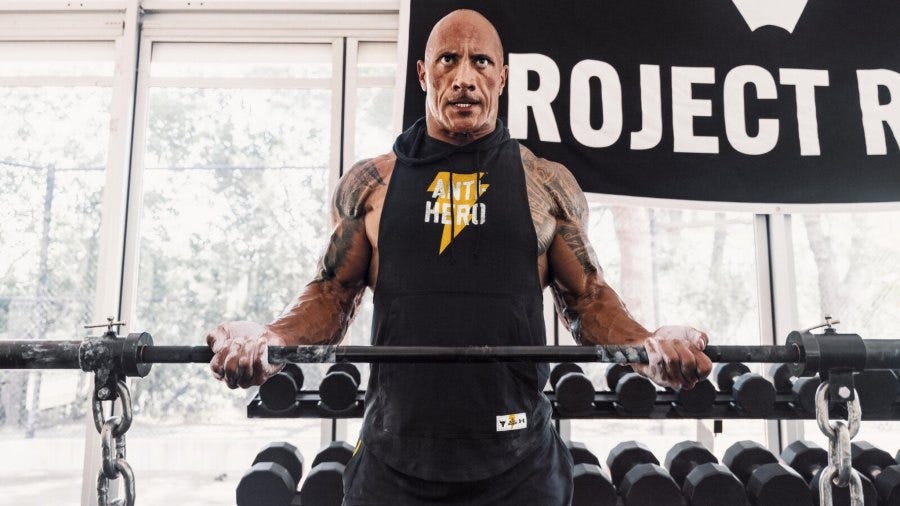
Someone who is far removed from his breakout is Dwayne Johnson, who is one of the few Hollywood stars remaining in the oddly evolving film landscape — producing television and films that continually pull in viewership and box office, building record breaking tequila and energy drink brands, and collaborating on apparel and workout gear with Under Armour in his own offshoot brand, ‘Project Rock.’ It’s easy to recognize that the gargantuan, half-Samoan, lovable teddy bear is dedicated to crowd pleasing and listening to what makes his model work. Someone with this much dedication to success and what the people want, all the way back to his wrestling days, seems like the perfect candidate to retool a DC cinematic landscape that has been divisive to say the least.

What comes with Johnson is a specific kind of movie. One that typically is a paint by numbers affair, stepping back into a ‘90s type of filmmaking practice — one with fun escapism, vivid characters, and sometimes technical experimentation all in the forefront over a sensical story. Because of this, Black Adam isn’t anything new. But not everything needs to be a borderline arthouse character examination like The Batman. Plus, that Batman universe isn’t a part of this, faux MCU, shared storytelling that DC is attempting; their recent installments being a lackluster Wonder Woman sequel and two R-rated anti-hero films (with a R-rated television spin-off). The company was overdue for a crowd pleaser with an accessible rating.
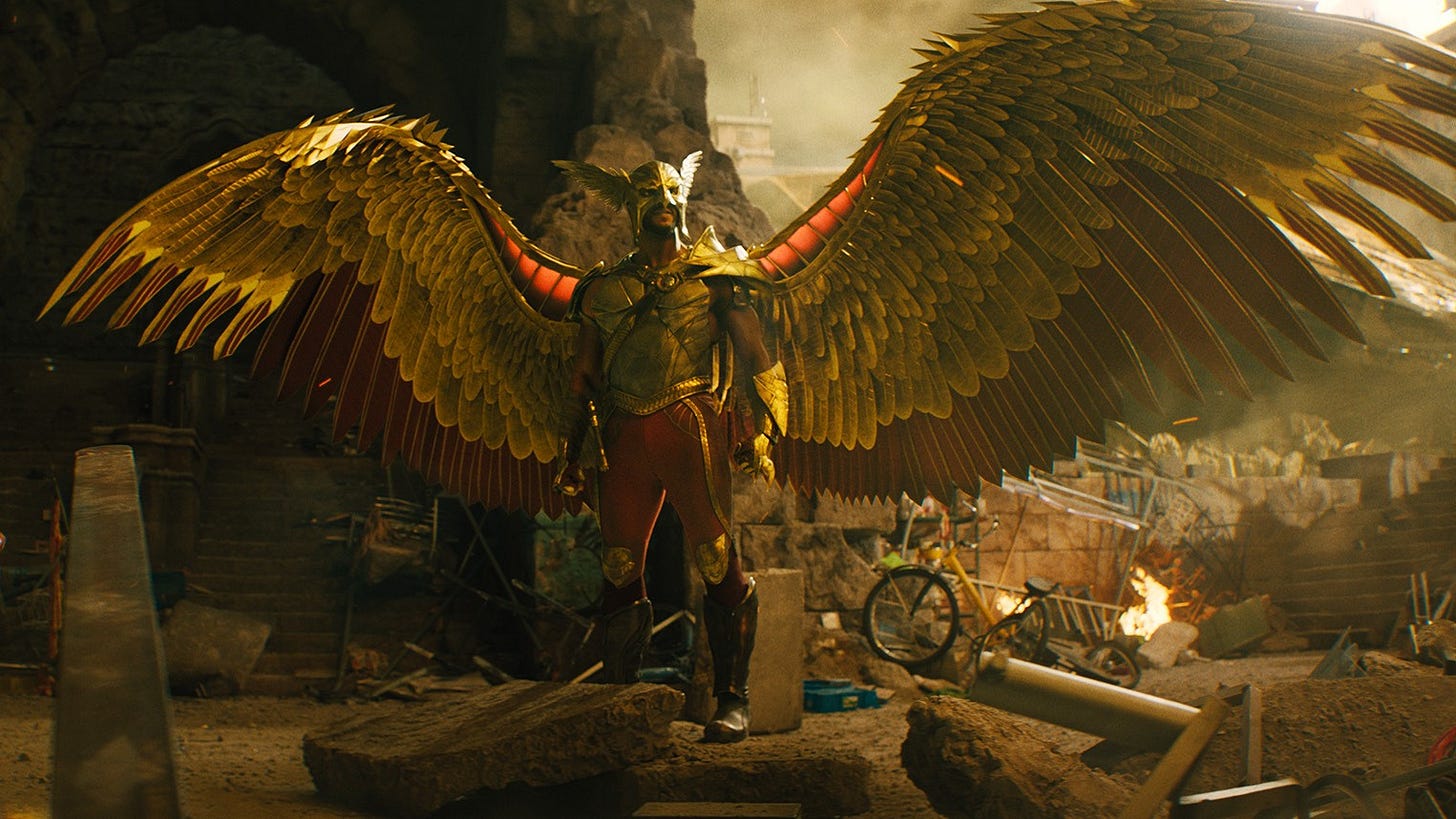
So with all the boxes of an average movie being checked, what defines the Rock’s dubbing of this film as “a new era in the DC Universe?” Well, most importantly, Johnson says that DC’s new foundation, when it comes to the films, will be to listen to the fans. Spotlighting new characters that have never been on the big screen before, telling stories for all types of people, and bringing back icons who have been on the sidelines for too long.
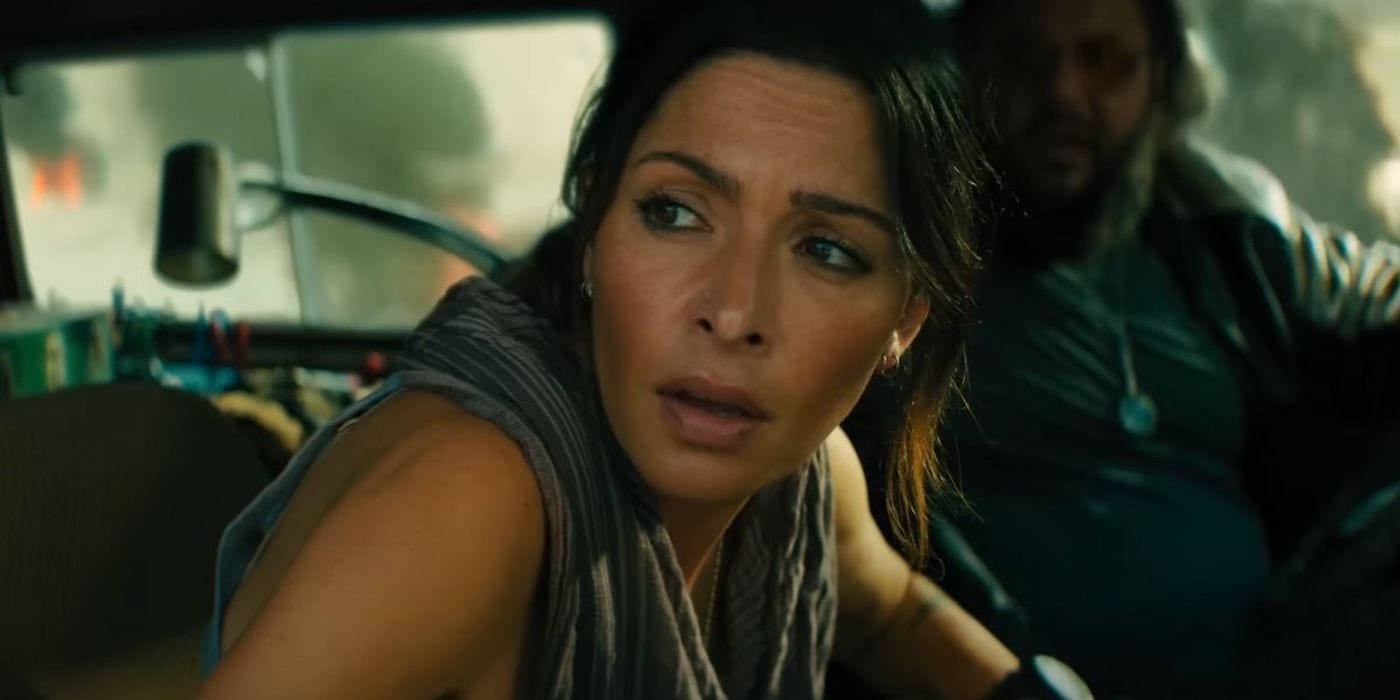
For Black Adam, the film is about more than the first appearance of the Shazam/Captain Marvel antithesis, but a staple of representation for Middle Eastern countries and cultures. It’s a glimpse into the problems of countries outside of our own, through the eyes of those that live there, not through the lens of an American/outsider. It’s rare to see something with this form of respect, refusing to even add a stitch of humor derived from assumptions and misunderstandings.
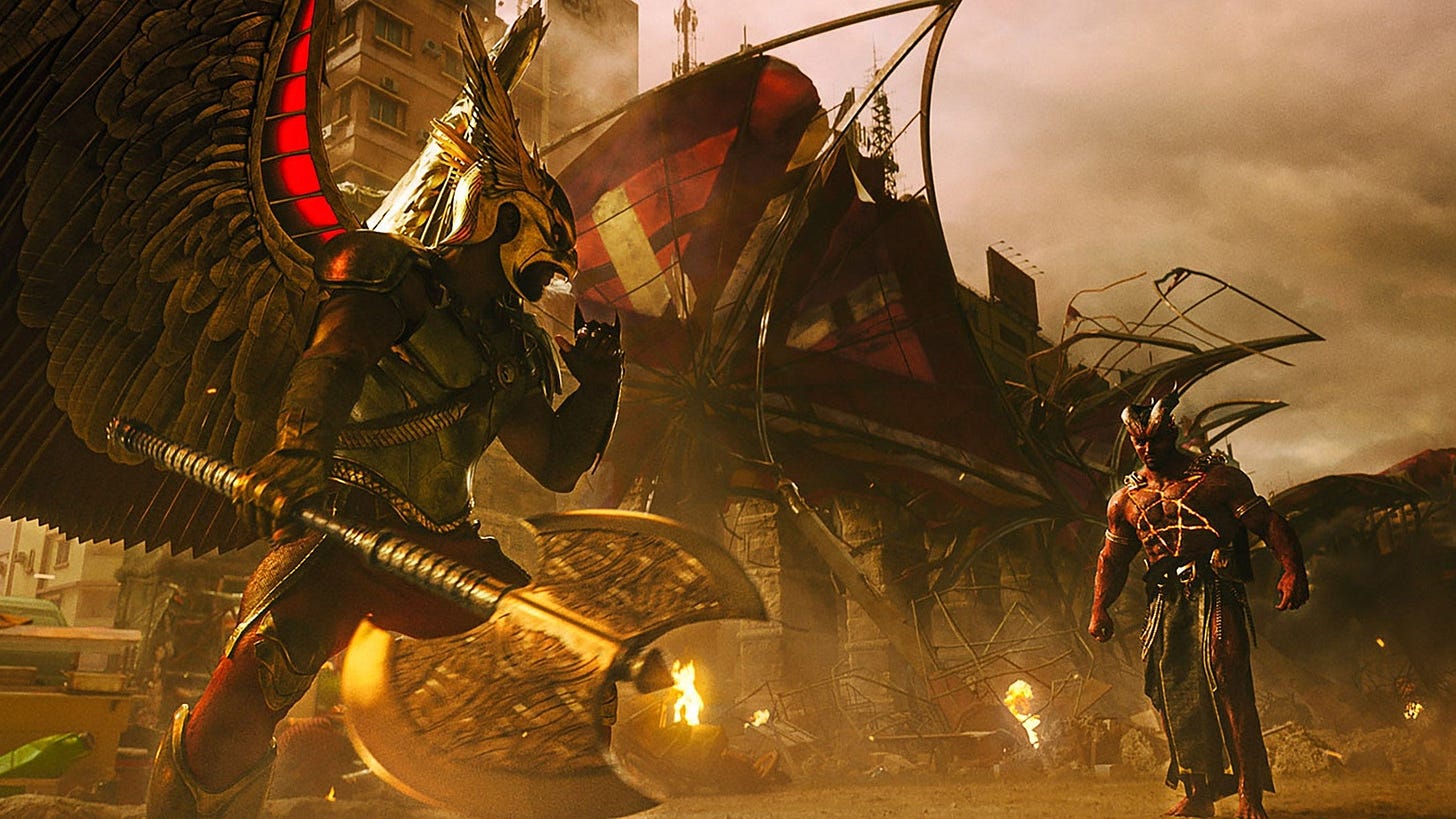
Despite that representation, the film never leans into it as much as they could have. They double down on escapist action immediately after a main character questions where the Justice Society was over the last 27 years of the occupation of the fictional country of Kahndaq. They show up when they’re tasked to fight Black Adam because of global fear for how his power could affect the rest of the world. This conversation is never brought up again (edited in an emotionless 20 cuts despite the characters standing in place), transitioning into a disjointed story about a magic crown that leads to a giant CG monstrosity for all of our super powered main characters to fight. A story of coming to terms with the idea that violence is a complicated necessity for the betterment of some societies is a great idea to explore, especially for a genre that usually preaches the opposite, that is hidden behind the big muscle men punching things.
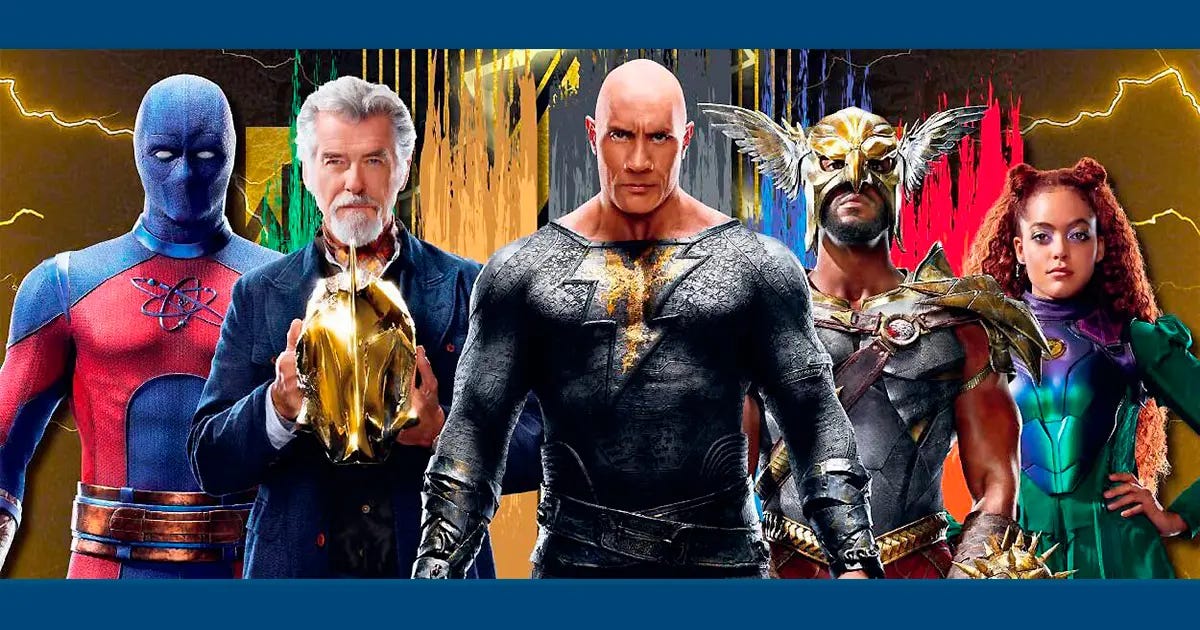
I’m not asking for less action scenes or a dampener on the fun that this movie has, but I do wish it had an awareness similar to Black Panther; whose screenplay didn’t shy away from how colonialism, the history of slavery, and the truth that an African nation with the resources that Wakanda has would infect the mind of idealists to utilize those resources for payback and terrorism. Black Adam could have been a story of a global peacekeeping group (the Justice Society) coming to terms with the fact that the governments they represent may not always have the interests they publicly preach in mind.
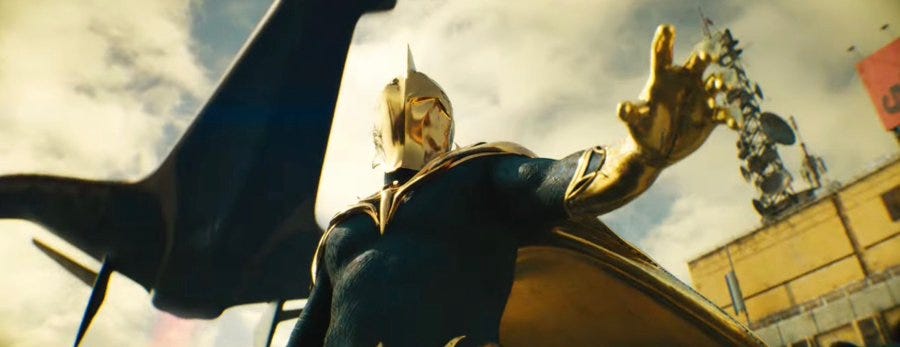
Black Adam is a fascinating film on all accounts. It’s a global superstar successfully flipping the switch on a questionable franchise, doing it in a project that features janky editing, questionably poor heart, and a surprisingly rushed screenplay for a film in development for 15 years. While a new era may mean listening to the fans, it still comes across as following in Marvel’s shadow. But in a way it all… works?
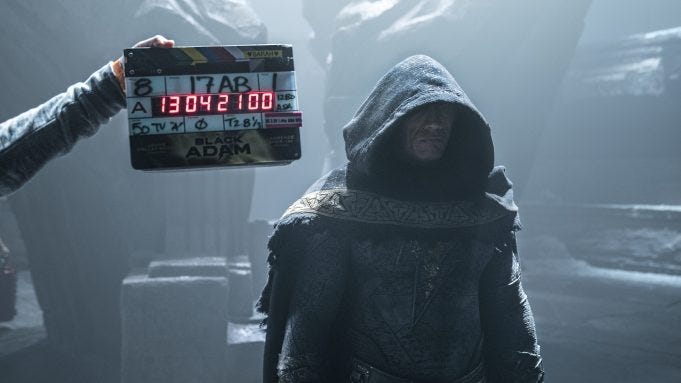
The success comes from the promising prospect of the company’s future under the film’s mindset — listen to the fans, deliver what makes these characters iconic, and (attempt to) focus on writing for what the characters represent. While Johnson’s brand of filmmaking may not be the way to go all the time, adding fresh voices who can listen to the fans while embodying the character’s ideals in their writing will be a wonderful step forward for a company that can’t seem to define how to use their iconic characters. With the announcement on Tuesday that James Gunn and Peter Safran will be co-chairs of the newly minted ‘DC Studios,’ the new era may get a better definition than what the Rock has been preaching sooner rather than later.


